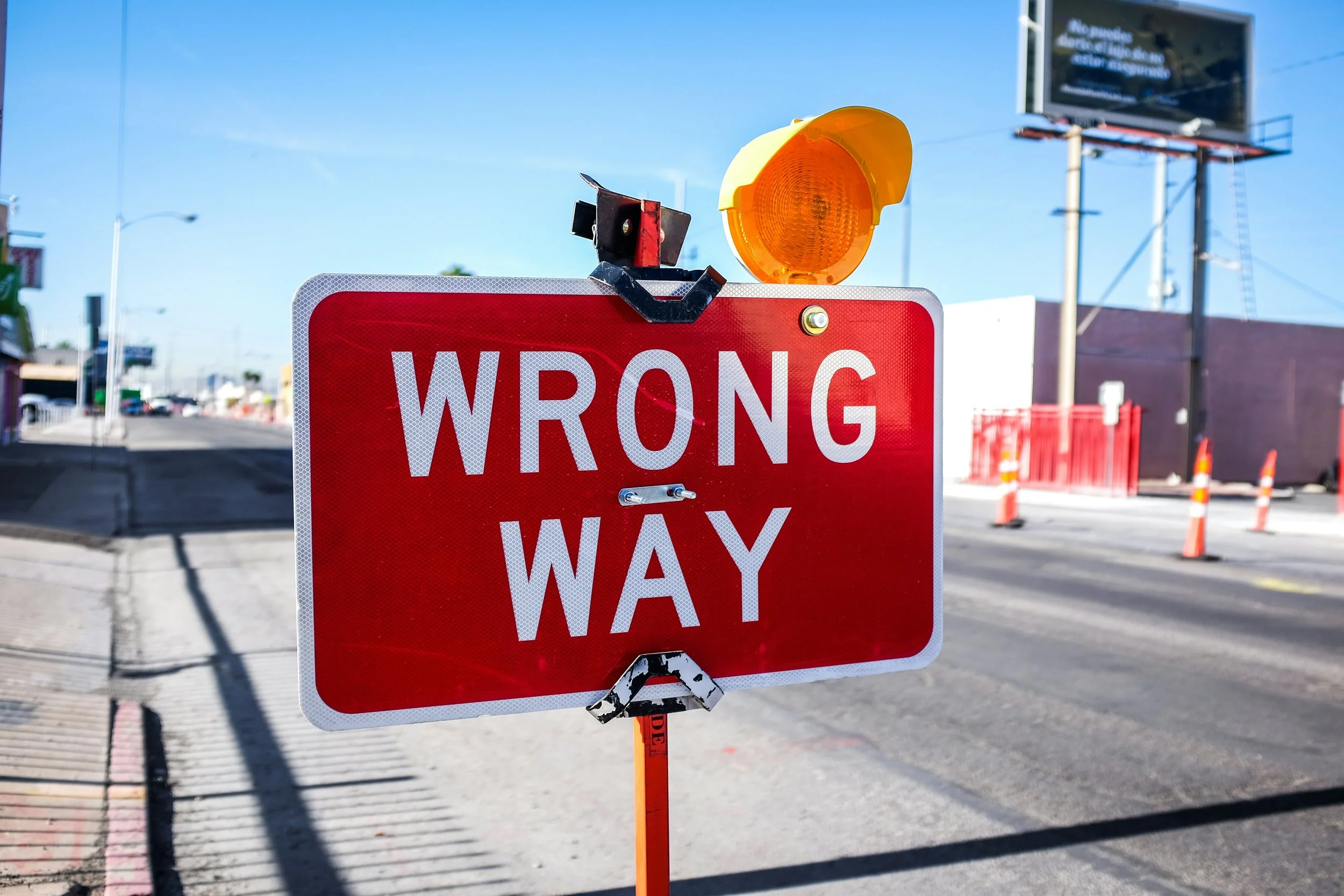
Beyond the Vibe: How to Stay Connected (and Sane) Through Dating and the Holidays
The holidays amplify everything - the loneliness, the longing, the pressure to “find someone.” But connection built on real alignment, emotional security, and genuine care lasts far longer than any “good vibe.” This piece explores how to date with intention, stay grounded through holiday loneliness, and build connection that actually feels safe.

The Power of Subtraction: How Sobriety Gave Me Back My Energy, My Time, and My People
Socialising feels harder than ever, but not because we’re broken - because the world is heavy, expensive, and exhausting. This piece explores how queer sobriety, micro-connections, and the surprising wisdom of “subtracting” can create more energy, presence, and joy than we ever found in the nightlife era.

What True Wealth Looks Like (and How I Forgot It for a Minute)
For a while, I kept Get Out running on autopilot - ticking boxes, doing the right things, but feeling the spark fade. Then I read new research on purpose and realised I’d stopped doing the one thing that made all this feel alive: contributing. Happiness, it turns out, isn’t found in chasing more. It’s in giving something meaningful away.

What Regret Taught Me (So You Don’t Have to Learn the Hard Way)
Coming out was never the hard part - staying true once the noise began was. I spent years chasing belonging through busyness, mistaking visibility for value. When the mask cracked, I learned something quieter but more enduring: peace isn’t found in being everywhere, it’s built by being honest somewhere. Sobriety, structure, and small rituals didn’t make life smaller - they made it real.

The Companionship Effect: Why Doing Life With People Beats Hustle, Hacks, and Heroics
Most self-help advice is a solo sport: get up earlier, grind harder, optimise smarter. But a huge time-use study shows something simpler—and kinder: almost everything feels better when you don’t do it alone. From co-working to co-errands to low-key “parallel play,” shared rhythms lift mood, make habits stick, and protect mental health (especially for queer folks navigating loneliness or chemsex pressures). This piece swaps lone-wolf optimization for social fitness—tiny, repeatable touch points that make ordinary weeks easier, lighter, and more human.

The Myth of Earning Love Through Work
Many of us grow up believing love must be earned through achievement, effort, and endless work. But this belief often leaves us exhausted, lonely, and disconnected from what matters most. Drawing on psychology, personal finance wisdom, and end-of-life reflections, this piece explores the myth of “earning” love, why so many of us fall into the trap, and how to choose differently — reclaiming joy, connection, and presence in the process.

Love, Out Loud (Even When We Disagree)
What if happiness isn’t found in the dream house, the perfect partner, or the algorithm that promises you connection, but in something far less glamorous? A coffee shared with strangers. A difficult truth spoken with kindness. A ritual repeated often enough that it becomes belonging. We think joy is a climax — a wedding, a promotion, a viral moment. But the science (and the stories of ordinary people) keep showing us that happiness is much quieter, more human, and infinitely closer than we realise.

The Partner Plot Twist: What If Dating Isn’t the Main Story?
If every conversation ends with “So, seeing anyone?”—you’re not imagining it. We’re culturally obsessed with coupling, even as apps turbo-charge snap judgments and fuel loneliness. This piece makes the case for stepping off the treadmill: prioritising friendship, purpose, and community over performance dating. With fresh research on swipes, AI “companions,” and why stated preferences rarely match real choices, here’s how to choose connection that lasts—whether or not it leads to a relationship.

Where to from here?
When I started Get Out in Hobart, I was lonely, part-time, and determined to build a simple bridge between people and their local communities. We’ve built it — and it works. What comes next depends on you. Should we add people, add time, or add investment? Tell us how you connect, what you care about, and where we should focus so Get Out serves real needs, not assumptions. Help shape the next chapter.

The Real-Life Reset
The less time I spend online, the more my life feels like mine — better sleep, warmer friendships, finished projects. Research shows why: screens promise connection but often fuel loneliness. This piece swaps performance for presence, with five “micro-freedoms” to trade screen time for real time (device sabbath, outdoors by default, one ongoing group, embrace friction, host tiny). The algorithm can wait. Your people — including you — can’t.

When It Feels Like No One Would Miss You — Finding a Way Back to Yourself
A raw reflection on loneliness, queer community, and what it means to keep showing up — even when it feels like no one would miss you. We share how Jung’s pillars, modern research, and the story behind Get Out offer a gentle roadmap for building connection, purpose, and a life worth staying for.

The Strength of Not Taking It Personally
In this reflection, we explore what it really means to stop taking the bait in a world wired for outrage — especially for LGBTQIA+ people who’ve learned to brace for judgment. From workplace digs to family jabs, this piece blends lessons on self-control with the quiet power of choosing where your energy goes — and where it doesn’t.

The Power of the Queer Locker Room
In this piece, we reflect on how mainstream sports culture can isolate LGBTQIA+ people — and how queer-friendly teams offer more than just fitness: they offer safety, spark, and belonging. Backed by research and personal experience, this article explores how sport can become a powerful antidote to loneliness, and a practical tool for community connection.

You Don’t Have to Be Alone to Feel Lonely — Loneliness Awareness Week 2025
Loneliness is often misunderstood as a problem faced only by people who are alone. But new research shows many of us feel disconnected even in relationships, families, or crowded social lives. This article, written to mark Global Loneliness Awareness Week (9–15 June), explores the rising health concerns around loneliness, its hidden presence in modern relationships, and how Get Out was founded to offer not just company — but purpose, connection, and joy.

In Trust We Begin: How Trust Transforms Loneliness Into Connection
Loneliness is often framed as a lack of company—but what if it’s actually a lack of trust? In this deeply personal and evidence-backed piece, we explore how broken trust shapes queer disconnection, why epistemic trust matters more than we realise, and how rebuilding trust (in ourselves and others) might be the most powerful antidote to isolation. With insights from So Lonely, Arthur C. Brooks, Esther Perel, and lived experience, this article offers practical strategies for cultivating meaningful, resilient connection.

The Hard Work of Happiness
We’re often sold the idea that happiness is a passive state—something we stumble into with enough time, money, or success. But research tells a different story. True happiness requires effort, intention, and sometimes a little discomfort. In this piece, we explore the neuroscience, psychology, and personal habits that shape lasting happiness—and why it might be the hardest (and most worthwhile) work of all.

Saying the Quiet Part Out Loud: Five Voices That Still Echo
Some words don’t just speak — they see us. This piece explores five powerful quotes from queer and queer-adjacent writers who say the quiet part out loud — about loneliness, identity, pain and quiet resilience — and why their honesty still matters today.

We’ve Been Here Before: When Fear Comes for the Queer Community
There’s a particular kind of silence that follows a warning. Not the kind that’s empty, but the kind that hums with memory, with grief, with fight. As anti-queer rhetoric surges, we’re reminded: we’ve been here before. And we know exactly how to respond.
